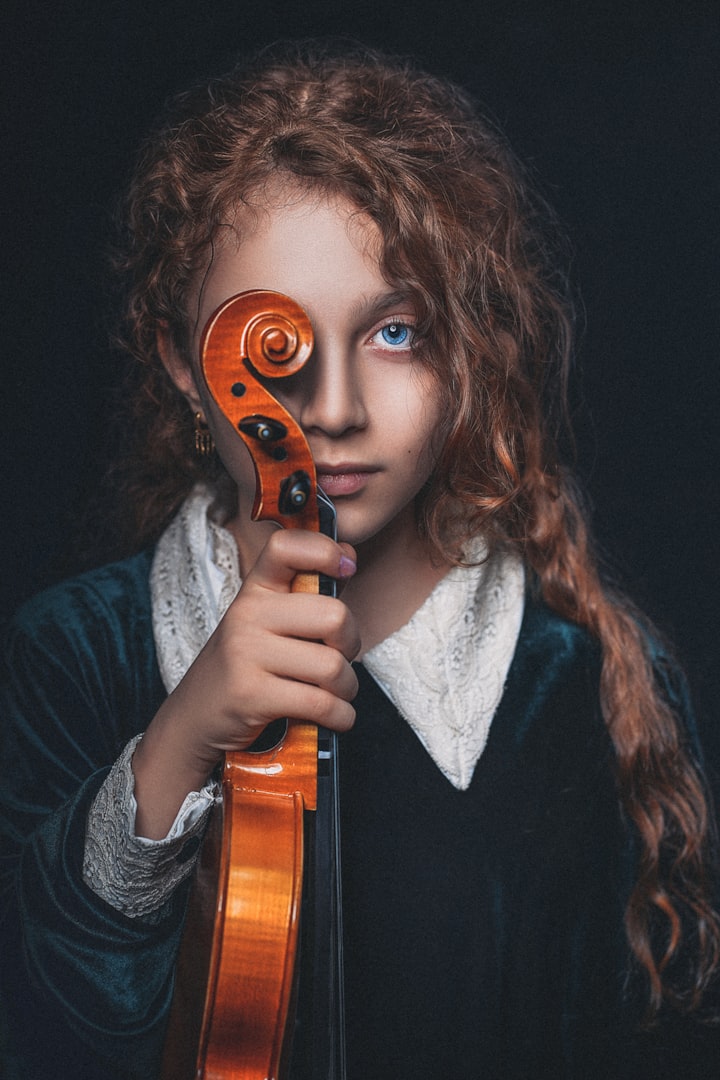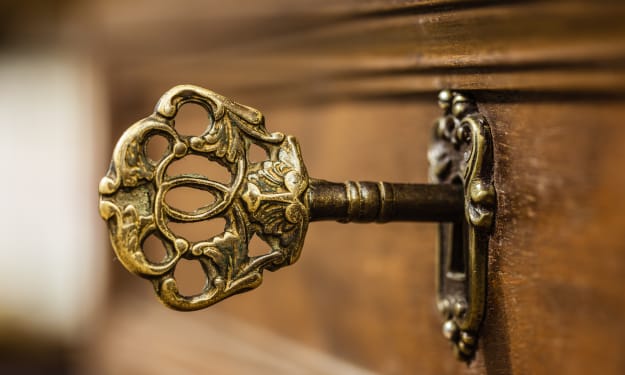Serenata
Aviva, a Dutch violin student, faces great loss and joins the resistance movement to liberate her starving Nazi occupied nation in WWII.

In a blanket of colours as vibrant as a Chagall masterpiece, as far as the eye can see, lay carpets among carpets of tulips. A grand gesture made by a very grateful Dutch Royal family for providing them with protection during WWII and liberating their nation from Nazi occupation.
Seated in her wheelchair, planted among the blooming spring perennials, is Aviva van Der Bos. The ninety-year-old Canadian war-bride, a visitor to Ottawa. A day trip from Montreal to the nation’s capitol of the country who adopted her in 1946 was a gift from her grandson Ryan and his family for her birthday.
As Ryan began explaining the significance of the tulips to his family, Aviva thrown back a lifetime in her mind’s eye. A dark place, contrasted by the festive hues laying at her feet, she locked inside herself for eight decades.
Amsterdam in 1938, the week of her 16th birthday, her beloved father suddenly died of a brain hemorrhage. Fedde van Der Bos was a cellist and professor at the esteemed Amsterdam Conservatory. He taught Aviva, his only child, his passion for music. She was also a student at the Conservatory studying violin, and to become a music teacher like her father.
As Aviva felt overwhelmed by awaking the recollections, she wept. Ryan’s attention immediately turned to his grandmother and asked her what was wrong. Holding back the floodgates of impending emotions, the senior insisted it was just the memories of an old woman. Her grandson sensed her sorrow and comfortingly squeezed her hand.
Ryan wheeled her chair toward an outdoor stage and set up blankets for his family on the lawn. He boasted about a musical trio scheduled to perform, which pulled Aviva back to the Conservatory.
After her father passed away, she battled feelings of loneliness and isolation. The violinist recalled delving deep into her music and how it was the only way she felt connected to her father and filled the void in her soul.
It was then she met Henri Bosmans, a young Jewish pianist and composer. Frieda Belinfante introduced them while offering condolences to Aviva. Frieda was her father’s favourite cello student, and Henri and Frieda escaped Nazi Germany to live freely in The Netherlands.
Aviva felt immediate compassion in the gesture, as Frieda and Henri also lost their mentor. Sharing their loss, the peers formed a musical trio and became inseparable.
She cherished every moment with her fellow musicians and felt an even stronger connection to Henri. The feeling was mutual, and the colleagues developed their relationship into lovers. It was a love based on mutual respect and adoration.
Aviva’s heart fluttered as she recounted her love for Henriette. Henri, as she preferred to be called, was a white light of pure love, unsullied by the calluses of life. They were 16 and Aviva felt grounded and calm during such a grievous period in her life. Henri nurtured Aviva back to reality. And, in return, Aviva inspired the composer to capture the rhapsody of their love in her compositions; eventually bringing Henriette Bosmans to international acclaim.
In May 1940, after refusing the Third Reich’s offer for protection, and remaining neutral, the Nazis invaded The Netherlands. Immediately, the tranquillity in Aviva’s life rudely interrupted. The invasion plunged Amsterdam into total chaos, and the young musicians sensed the ground slipping from under them.
The Dutch banded together to resist their captors. Fear consumed the trio for their lives as information trickle down from German colleagues about the treatment of Jews. Aviva remembered the debate they had over joining the Dutch Resistance and a sudden shiver ran down Aviva’s spine recalling her naivety. She believed the Nazis were simply there for military strategy and everyone would be safe if they cooperated.
She could still hear the pitch of fear in Frieda and Henri’s voices as they argued with her, claiming she was not Jewish and did not understand how radical the Third Reich was. At first, Aviva thought she would prove them wrong, as the Dutch took part in several peaceful demonstrations against their occupiers. Unbeknownst to Aviva, her friends joined the resistance.
Until spring 1944 when Nazis invaded Aviva’s sanctuary and attacked Jews at the Amsterdam Conservatory. Bile rose in her throat as she relived that fearful day as vivid as the tulips she admired.
How helpless she felt sitting petrified and trembling as the SS stormed into the music chamber, arresting Professor Hezekiah and students. As an Officer forced Aviva to continue to play at gun point, soldiers dragged them out of the chamber kicking and screaming.
Aviva recalled tears streaming down her face while she played Serenata. She preformed as loud as she could to squelch the cries as everyone appeared to move to the methodical tempo of her bow. It was all she could muster herself to play, and could never bring herself to play Serenata again.
Aviva witnessed those opposed shot in cold blood. Once the SS left, she gathered herself and sought Henri and Frieda. Searching amongst the pandemonium as the entire university clamoured to gain control, she pushed through crowds of people, but Aviva couldn’t find either of them. She felt hope they escaped and returned to the residence.
Once there, Aviva immediately went to Henri’s room. Bruising her fists banging on the door, met with a silent, motionless barrier. She proceeded to Frieda’s room to encounter the same. The violinist collapsed at the foot of the door, unable to breathe, gripped back to reality by a firm shake.
She came face to face with a familiar stranger. A young man with delicate features and lady-like hands. Finally, she realized it was Frieda, disguised as a man. How relieved she was to see her friend alive and well.
They entered Frieda’s room quietly, and she delivered Aviva news on Henri. The Dutch resistance received information the SS were going to sweep Amsterdam for Jews. It also instructed them to disguise themselves and meet at a specific location.
Once there, the organization briefed them on their assignments and provided them with forged documents. They used Henri’s notoriety to escape Amsterdam immediately, going on tour with French singer Noemie Perugia. This action saved Henri and several Jewish musicians, who performed with her in the Concertgeouw Orchestra, from Nazi extermination camps.
As the musical trio played at Ottawa’s International Tulip Festival, Aviva relived that moment she realized Henri was alive. Her heart expanded larger in relief with every breath, only to implode feeling despair of never having said goodbye. Finally, the senior broke down into sobs as she realized she never saw Henriette Bosmans again.
Ryan excused them from the concert for a reprieve in the car. Finally, she confessed her story to her shocked grandson. Aviva explained how Frieda introduced her to Willem Arondeus, the leader of the Dutch Resistance. The harrowing experience at the Conservatory overruled her decision to join their important movement.
Aviva admitted years of scribing musical notes came in handy to create forged documents for escaping Jews and allies duping the Nazis. Since they shipped most Dutch men off to labour or extermination camps, the responsibility to fight their invaders fell upon women. Aviva’s role increased, and she found herself at the forefront of some unbelievable espionage activities.
As the Gestapo used the Amsterdam Population Registry to validate documents, the Resistance devised a covert mission to bomb the registry to impede Nazi efforts.
In spring 1943, Frieda and Aviva broke curfew under cover of night. Disguised as Nazi soldiers, they made their way in a stolen, military-issued truck to take their stations patrolling the Population Registry. Aviva remembered that cold, wet night as the two operatives blended in and took up their posts.
The soldiers they replaced lured into a wood earlier by the Oversteegen sisters. The attractive siblings brought them to a secluded area with promises of sex and the men eager to take the women instead met with a quick shot to the head.
Resistance members undressed the soldiers and disposed of their bodies. They fit the uniforms to Frieda and Aviva while they loaded the bomb into the stolen truck. The two freedom fighters took their posts. On a mark, they met at the truck, armed the bomb and the building destroyed in the blink of an eye.
Unfortunately, they identified Frieda during the mission and had to escape immediately. Aviva tasked to bring Frieda to the Lysander to escape to Belgium and retrieve an incoming allied Canadian Officer.
The allies worked to infiltrate Amsterdam and provide needed intelligence as the Canadian Army fought on the Scheldeman estuary. Liberation of The Netherlands had hinged on intelligence gathering.
She recalled the early morning sunlight penetrating through the thick fog after a night of icy rain. Optimistic, as pure adrenaline fuelled their exhausted legs, they bicycled up a makeshift path, over rough terrain, to the remote location where the Lysander would land.
The slow-moving plane was the workhorse of the Dutch Resistance. Flying below radar, low to the ground, the solid craft could move covert operatives in and out of Holland and courier important information on the locations of Nazi troops.
They arrived at the meetup location an hour early and took time to rest and enjoy each other’s company. Suddenly they saw the Lysander on the horizon. Excitement sped up time and soon the plane landed and off-boarded its Canadian passenger.
With no time to waste, Aviva gave Frieda a quick, deep embrace goodbye and without introductions, she and the Canadian were on their way. Her orders were to deliver Captain George Pool, a CANLOAN officer dispatched to British intelligence directly to Willem Arondeus.
Keeping her mind focused, Aviva admitted to her grandson she didn’t feel any connection to his grandfather at first. The mission was clear, and neither of them expected what happened next.
On their way over the rigorous terrain, Aviva’s bicycle tire flattened. With many kilometres left to cycle, they had no choice but to double up.
Aviva hopped onto the handlebars of George’s bike and they rode in awkward silence until they discovered a SS patrol unit lurking in their path. They had to duck for cover and hide the bike. They waited for hours monitoring SS activity, missing their meet time with the leader of the Dutch Resistance.
Aviva remembered feeling scared of being discovered. Yet, she sensed she could trust the man she was with by the way he appeared untroubled by their situation. He reassured Aviva in broken German and she realized, if caught, his lack of dialect would give them away.
Soon activity subsided and carefully, keeping to the outer areas where they could easily hide, the couple made their way back to Amsterdam on foot, arriving hours late.
Scouts informed Willem they’d arrived, and the three met to debrief. After pointing out George’s lack of language skills, Willem assigned Aviva, who spoke English, Dutch and German, to be his shadow. They had a lot of work to do in a short time as the Dutch were starving to death, resorting to boiling tulip bulbs to eat.
They provided the two safety in an abandoned farmhouse outside Amsterdam with limited supplies and forged identities. Their guise was to pose as married elderly farmers. The first night proved too uneasy until George broke the ice with his calm, grounded demeanour. He probed his partner for information about herself.
This was strange, Aviva admitted to Ryan, since everyone she had ever known knew something about her. She never had to acquaint herself with a complete stranger before.
She had to rely on this man for her life, and he had to rely on her for his. Naturally, a connection of trust formed. She opened up and responded to his questions and asked her own. It delighted him to hear about her musical family background.
George described his life in Canada. He was born and raised in Verdun, a large working-class neighbourhood in Montreal. He was the eldest of five siblings, three sisters and two brothers. His mother widowed shortly after his youngest brother was born, making him the patriarch of the family. His father dying suddenly from a massive stroke.
He dropped out of high school to support them as he a welder. When the war broke out, he joined the army right away. Soon, his ability to take instruction from engineers and eagerness to learn fast-tracked him into higher ranks.
They had stationed him in Italy for the last two years before being transferred to England. He volunteered for the CANLOAN program. When Operation Market Garden failed in Amsterdam, they assigned George to assist the Dutch Resistance in a change of strategy.
While in hiding, the couple had to prepare their disguises. This involved dying their hair and administering each other’s makeup.
Self-conscious, Aviva could still feel George’s gentle touch as he massaged the dye into her hair and carefully brushed pale foundation onto Aviva’s face, breaking a barrier.
Aviva starved for affection for years. It felt so good she reached out and touched George. He recoiled at first, taken aback, but she encouraged him it was ok and she lay with a man for the first time.
She boasted to Ryan of George’s genius at leading allied missions, allowing the Canadian army to capture bridges over the Rhine rivers. Finally, George’s regiment from Italy, the 1st Canadians corps, reinforced with allied forces, furnished the Dutch with their freedom.
Aviva couldn’t hold back the emotion of these memories. How splendid and grateful the Dutch were to Canada. That night, George proposed marriage and Aviva said yes in a heartbeat.
They had to return to headquarters in England. The moment they got off the train, they went to the courthouse and wed. The war was finally over.
Within a few months, Aviva was pregnant with Ryan’s father, Christopher. George returned to Canada with his regiment and prepared for her arrival. Soon she followed travelling third class on a converted luxury liner with other war-brides from London to Pier 21, Halifax, Nova Scotia.
When she arrived, the exhausted, eight-month pregnant woman transferred onto a train headed for Montreal. She recounted being frightful the baby would arrive en route.
Finally, she arrived at her last destination; the train pulled into the Bonaventure Station where Aviva would reunite with George. She collected her life’s belongings packed in a large suitcase and sat anxiously, waiting and wondering how he could be late.
Soon, the crowd thinned, and she heard her name broadcasted over the PA system, directing her to the ticket counter. There, she met Catherine, George’s sister. Aviva immediately recognized her expression only to have her worst fear confirmed, “I’m so sorry to deliver such grave news my dear, but George passed away of a massive stroke last night.”
About the Creator
Wendy Lee O'Paquette
to follow ..






Comments
There are no comments for this story
Be the first to respond and start the conversation.